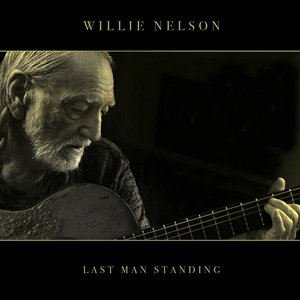Rating: 7.5/10
As was discussed in my recent collaboration with The Musical Divide on the importance of continuing to cover and discuss mainstream artists, country music finds itself in an identity crisis in 2019. Bro country has long since died, and now the genre is seeking to reclaim its core fans. We’ve seen Luke Bryan and Blake Shelton release recent quality, country-sounding singles to radio. We’ve witnessed the meteoric rise of Luke Combs as listeners gravitate toward his authenticity and relatability. And we’ve watched George Strait come out of nowhere to suddenly regain airplay with “Every Little Honky Tonk Bar.”
Somewhere along the way, as we lost the substance and sounds of country music, we also lost the female perspective. Women became “girls” who rode shotgun in trucks and sipped drinks in clubs. NO one wanted to hear from a woman because it seemed they had nothing of value to say. The career resurgence of Reba McEntire is an embracing of both substantive and traditional country music, as well as an acknowledgement that forsaking the perspective of women might not have been such a sensible idea after all.
As I said of George Strait, a new Reba album is never a bad idea and always promises to deliver in both sound and quality. Stronger Than the Truth is not some forward-thinking opus that will blow the minds of all its listeners, but it’s a welcome return for Reba McEntire that shows her embracing her roots proudly.
First of all, can we please get an entire Western swing record from Reba? The opener, “Swing All Night Long With You,” fits her like a glove and remains one of the strongest tracks on the whole thing. It’s so infectious, with its cheerful piano and lively fiddles and guitar licks. “NO U in Oklahoma” is also a standout with its fun, upbeat production and catchy melodies. Reba brings a personality to both these songs that is frankly unmatched on the rest of the record. It would be great to see her explore this for a whole album; we often see country artists record a bluegrass album or a gospel project later in their careers–as McEntire herself did recently–and for Reba, a Western swing album would be perfect. She has a great voice for it and an obvious passion for the discipline.
Most of the album isn’t nearly as lighthearted as these two selections, however. Much of the material deals with heartbreak and pain, exploring the emotions so often associated with country music yet also so often ignored in recent years by mainstream performers. “The Bar’s Getting Lower” is an almost brutal slice of honesty, as the narrator contemplates having a one-night stand with the man she’s just met in the bar because she’s getting older and lonelier, feeling that she might never settle down and make her mother proud. It’s a song that will be relatable to so many, to the ones who have directly felt this desperation and to the ones who live in fear of one day becoming this woman. “Cactus in a Coffee Can” is a nice story song and one that will probably be universally liked, telling the tale of a woman who sits next to McEntire on a plane, pouring out her life story of a mother who abandoned her on the day the girl was born and struggled with addiction until the day she died. The title track remains one of the highlights as well, simple in its execution but timeless in its message as the main character tries to cope with the soul-crushing knowledge that her husband has betrayed her.
There is a lull in the heart of the album where a moment of energy would have helped to lighten the mood. “Storm in a Shot Glass,” one of the album’s most catchy selections, could have been sequenced differently to better break up the otherwise mid-tempo, depressing stretch from tracks 2 through 7. It’s also here that we find some songs which are told better by others elsewhere on the album; for example, “The clown” is essentially Part 2 of “Stronger Than the Truth” and doesn’t tell the story nearly as well as that song. It also feels like the piano drags on forever, which admittedly goes with the repeated line “the piano kept playing” to illustrate that life goes on all around us even when our hearts have just been broken, but the whole thing just feels a bit overwrought. “Your Heart” is also pretty forgettable and seems to be advising women to lead men on; this was probably not the actual intention, but the song is framed that way. Trimming a couple of these songs, sequencing them a little better, or even adding another upbeat moment here would have really gone a long way toward keeping the album from dragging and becoming too depressing.
Overall, though, this is a nice, solid slice of country music and a welcome return for one of the genre’s best. The strongest songs are near the front and back of the record, and there’s some filler in the middle, but there are some truly excellent tracks here. The Western swing numbers have instant replay value, and “The Bar’s getting Lower” is one of the best songs of the year so far. The songwriting is strong throughout most of the record, the production is interesting, the music is country, and Reba sounds great vocally. Another solid album from Music Row, another encouraging sign for the genre as a whole, and another quality offering from Reba McEntire.


